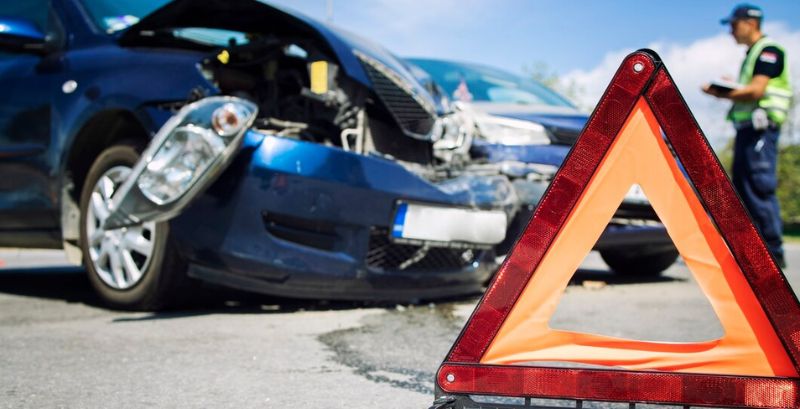Making a claim for a road traffic accident can be a long and complicated process. It’s important to stay updated on the latest laws and rules that affect how compensation claims are handled.
A Road traffic accident lawyer working on these cases must follow specific court rules. If either side doesn’t follow these rules, the court can impose penalties, like not allowing certain evidence (such as medical reports) or even dismissing the case.
If the case is dismissed, the person making the claim may not receive compensation and could be ordered to pay legal fees.
The Personal Injury Protocol is part of the Civil Procedure Rules (CPR) and aims to:
- Encourage both sides to share information early on.
- Encourage both sides to investigate the situation before going to court.
- Help both sides reach an agreement to avoid court if possible.
- Set a timeline for how the case will proceed if it goes to court.
Your motor vehicle accident lawyers will need to send a Letter of Claim to the other party. This letter outlines the case details, including information about injuries and financial losses.
The other party has 21 days to respond and provide their insurance information. After that, they have three months to investigate and decide if they accept responsibility.
How to File a Road Accident Claim?
Many people involved in road accidents are dealing with it for the first time, which can affect the compensation they get. To help you file a strong road accident claim, follow these simple steps:
1. Make Sure You’re Safe
After the accident, your safety is the most important thing. Check yourself and your passengers for any injuries. If it’s safe, move out of traffic to avoid further danger.
2. Gather Important Information
Once you’re safe, start collecting the details you’ll need for your claim. It’s best to do this right away while everything is fresh in your mind.
- Write down where the accident happened and what occurred.
- Take photos of the accident scene and all the vehicles involved.
- Exchange contact and insurance details with the other drivers.
Also, make sure to call the police. In Florida, you must contact the police if the damage is over $500.
They will create a police report, which is essential for your claim. Although it might feel stressful, this report will be important when seeking compensation.
3. Get Medical Help
Even if you feel okay after the accident, it’s still important to see a doctor. Sometimes, adrenaline can hide pain, and you might have injuries you don’t notice right away.
Your medical records and bills will be very important when you make your claim. You’ll want your insurance to cover all medical costs, so having proper documentation is key.
4. Contact Your Insurance Company
After the accident, call your insurance company to report what happened. They’ll ask some basic questions to figure out how much compensation you might need.
They’ll likely want:
- Names, contact info, and insurance details of everyone involved
- Basic facts about the accident, like the time and place
- Photos of the damage to the vehicles
- The name and badge number of the police officer who filed the report.
Make sure you report the accident within 30 days to stay eligible for insurance coverage.
5. Stay in Touch with Your Insurance Company
A few days after you file your claim, an adjuster from your insurance company will contact you. Their job is to figure out what damages your insurance will cover.
To do this, the adjuster will look at the evidence, which may include:
- Talking to witnesses
- Reviewing the police report
- Inspecting the accident scene
After that, you’ll have a couple of options:
- Let the insurance company arrange the repairs for your car.
- Take payment and handle the repairs yourself.
If your car is totaled (damaged beyond repair), the insurance company will pay you the car’s value instead of fixing it.
Dealing with Insurance Companies After a Road Accident in Florida
In Florida, no-fault insurance means your insurance company will cover your damages, no matter who caused the accident.
But if your injuries and damages go beyond what your insurance covers, you can file a claim with the other driver’s insurance if they were at fault.
Unfortunately, insurance companies may try to avoid paying you fairly to save money. They might:
- Offer you a low settlement
- Try to shift some blame onto you
- Deny your claim altogether
If you run into these problems, talking to car accident claim lawyers is a good idea. They can help make sure you get the compensation you deserve for your injuries and damages.
| Note: Since Florida follows no-fault insurance rules, every driver must have car insurance and keep proof of it in their vehicle.
PIP and PDL Insurance To meet the minimum requirements, your insurance policy must include:
|
Figuring Out Who’s at Fault in a Florida Accident
If the damage costs go beyond what PIP insurance covers, people like insurance adjusters, judges, or juries will decide who is at fault by looking at the available evidence. They’ll review things like:
- Statements from drivers and witnesses
- Accident and police reports
- Photos or videos of the crash
- Damage assessments and medical records
They’ll look for signs of negligence, such as:
- Distracted driving (like texting)
- Driving under the influence (alcohol or drugs)
- Speeding
- Running stop signs or red lights
- Tailgating (following too closely)
- Careless driving
- Breaking traffic laws
If they find evidence of these actions, it can help prove who was responsible for the pain and suffering in a car accident.
Suing the At-Fault Driver
If your insurance company doesn’t give you the compensation you deserve, you can take legal action.
You have the right to file a lawsuit and get compensation after a car accident for negligence against the driver responsible for the accident to recover money for your injuries.
In some situations, you can also sue the insurance company, but it’s a good idea to talk to a lawyer first to understand your options.
Need Help?
If you or someone you know, needs help from a lawyer, contact the law offices of Swartz & Swartz, use our live chat, or send us a message using the form below and we’ll get in touch to assess your case and how we can help. For more information, contact Swartz & Swartz, P.C. today!
Keep Reading
Want more? Here are some other blog posts you might be interested in.




